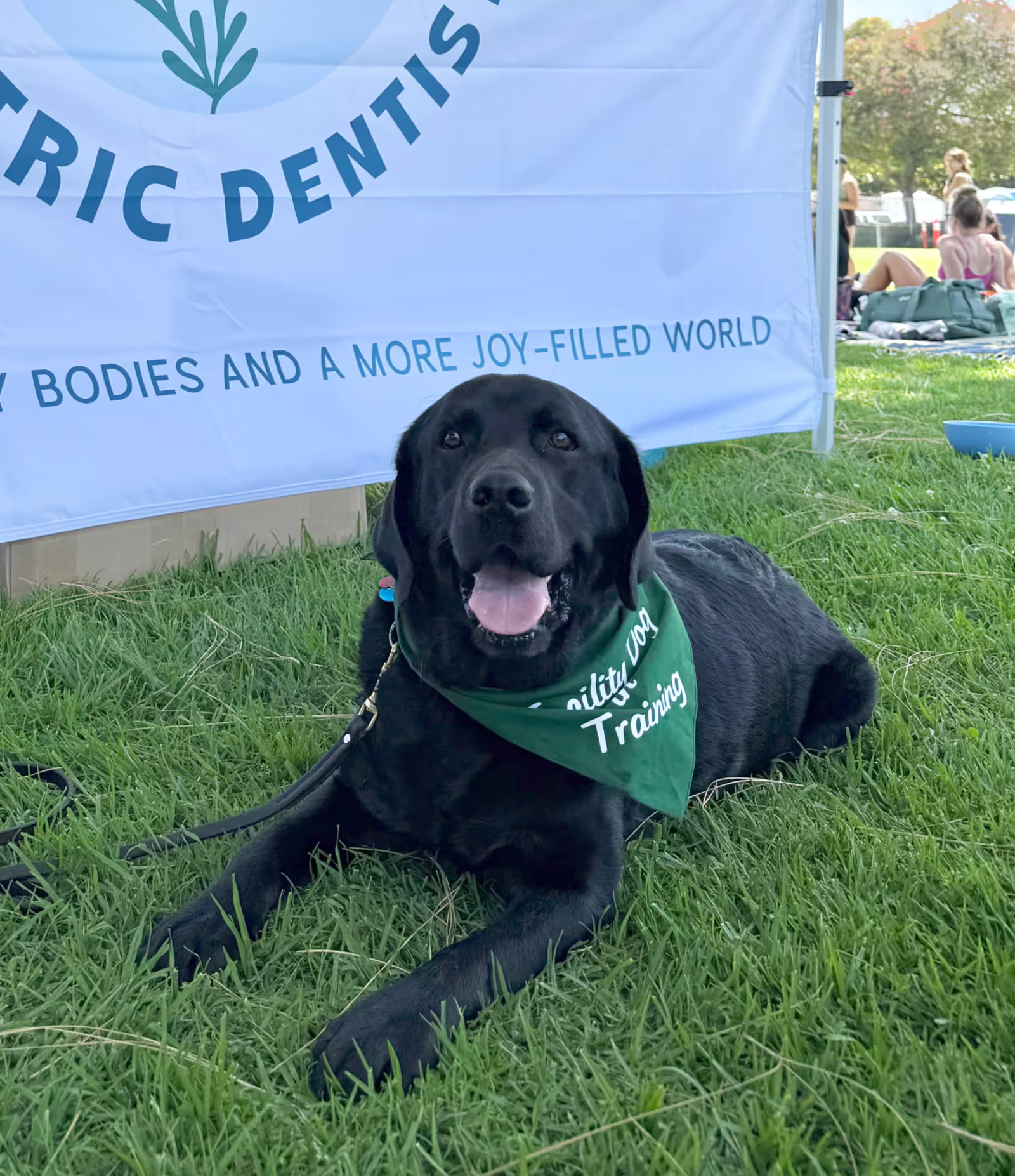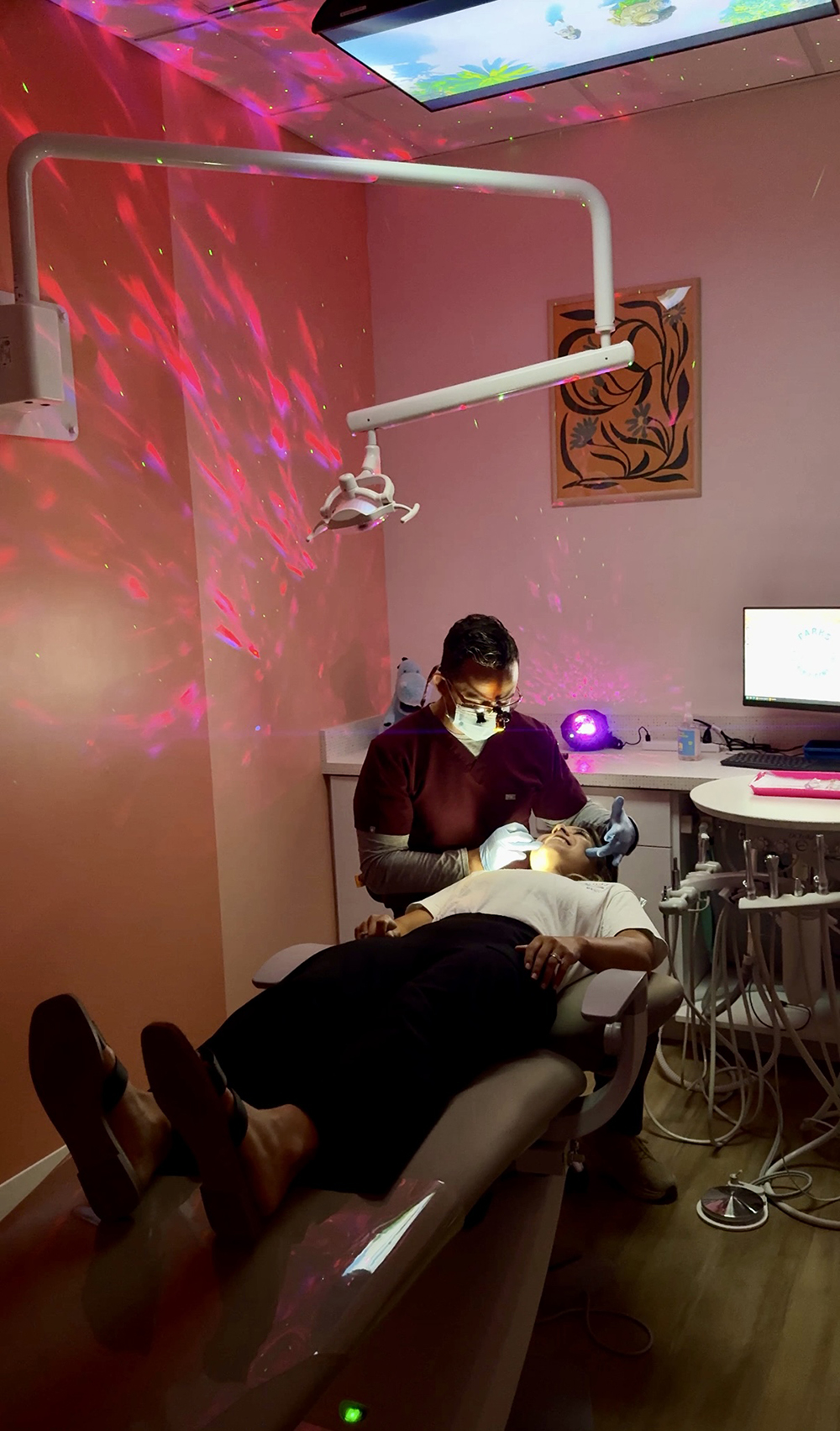
Special Needs DentistryIn Point LOmaUnderstanding California's Oral Health Assessment
in San Diego
Understanding California's Oral Health Assessment
We're passionate about creating an inclusive dental home where every smile is welcome. Dr. Parks takes the time to get to know your child personally, understand what helps them feel comfortable, and customize their care experience around their unique needs. We intentionally designed elements of our office to help children with developmental disabilities. We have a sensory friendly room, sensory lights, weighted blankets and a facility dog. Please take the time to call our office and help inform us of your child's specific needs as we are happy to attempt to create personalized experiences for our patients.
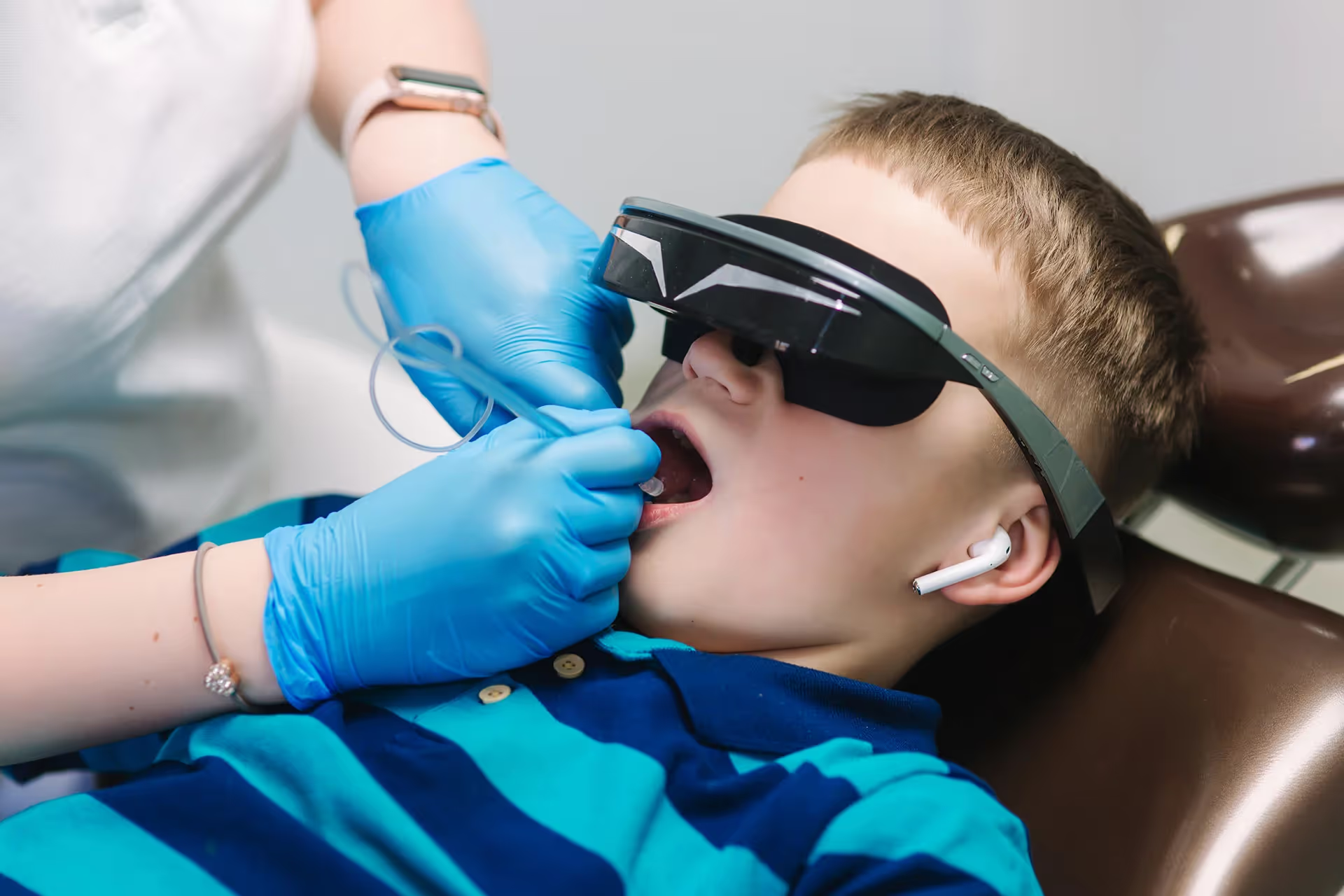
Preventive Dentistry
Why should I choose a special needs dentist for my child?
Every child is different, especially when health challenges make dental treatment more complex. Dr. Parks brings extensive experience working with children who have developmental disabilities or sensory processing diagnosis'. Dr. Parks has access to Rady Children's Hospital to treat children both in his office as well as the hospital when necessary.
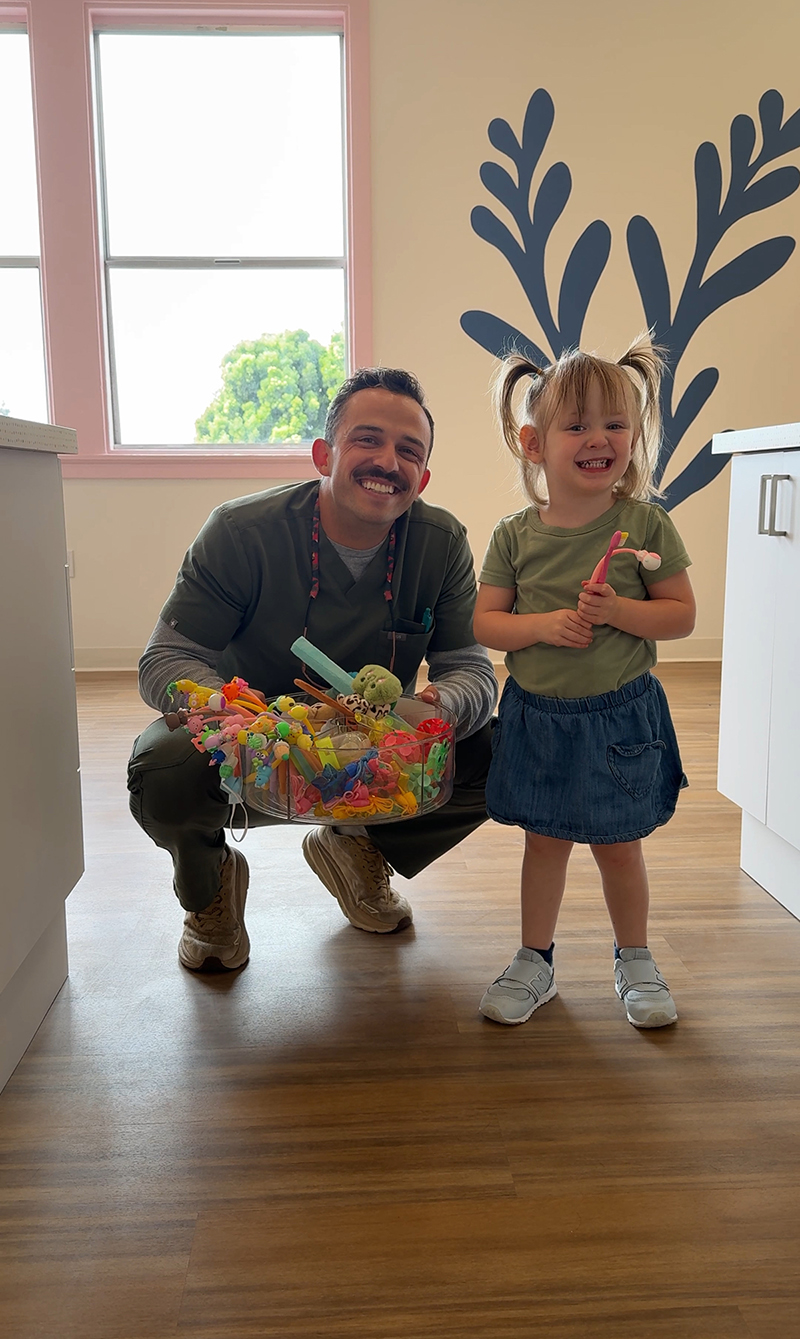
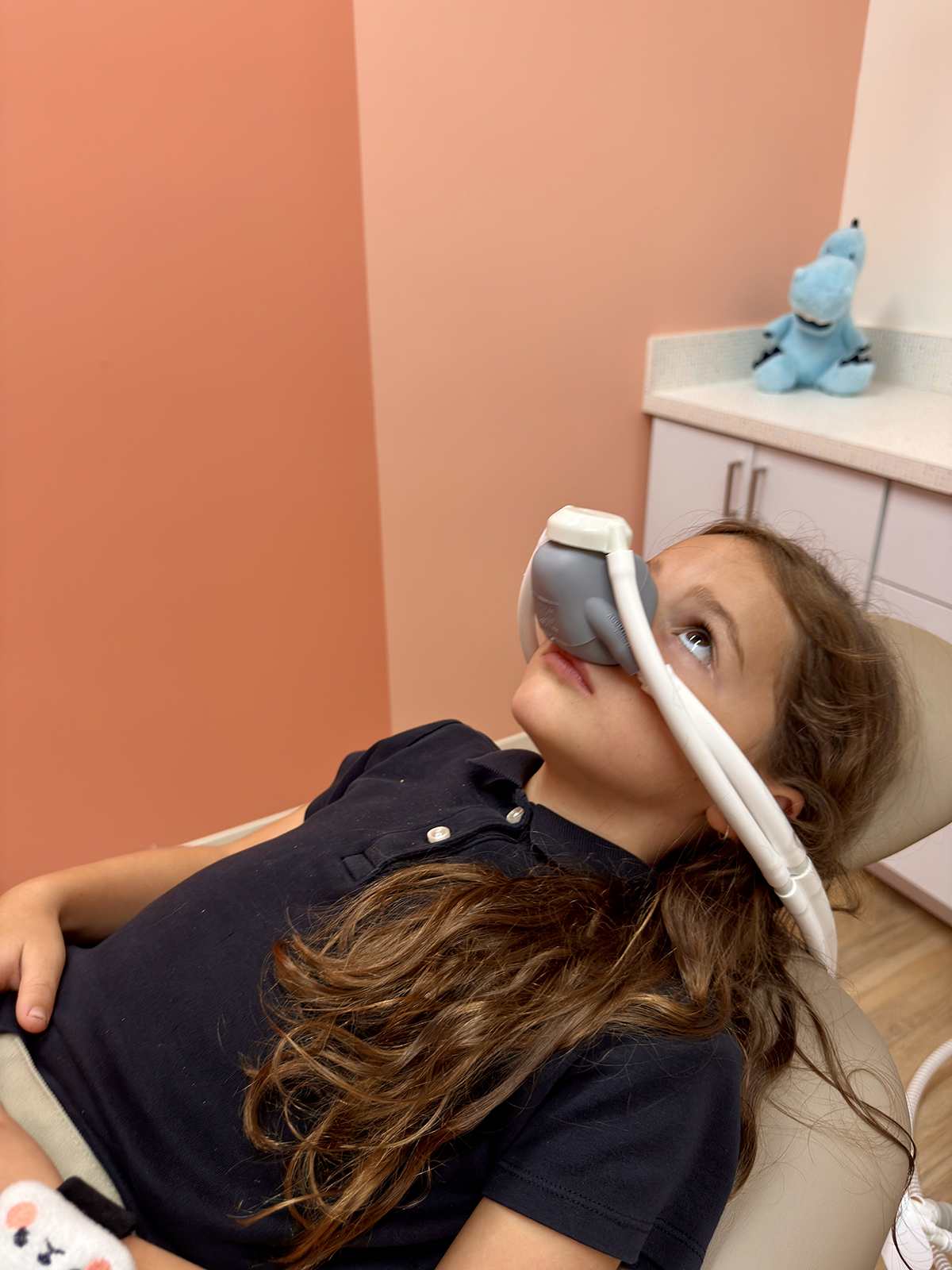
Stress-Free Sedation Options
No child deserves to struggle with fear or pain during treatment. Sedation options are an effective way to help your kiddo get the care they need without discomfort or anxiety. Talk to Dr. Parks to learn more about what sedation option will best fit their needs.
Special Needs Accommodations
Expert Training in Behavior Guidance
Advanced training in behavior guidance and minimally invasive techniques to help desensitize patients.
Certified Facility Dog
Animal-assisted therapy featuring George, our specially trained and certified facility dog, to provide emotional support and comfort during visits.
Sensory-Friendly Environment & Flexible Scheduling
Sensory-adaptive room and environment designed to reduce overstimulation, with exclusive scheduling opportunities available upon request.
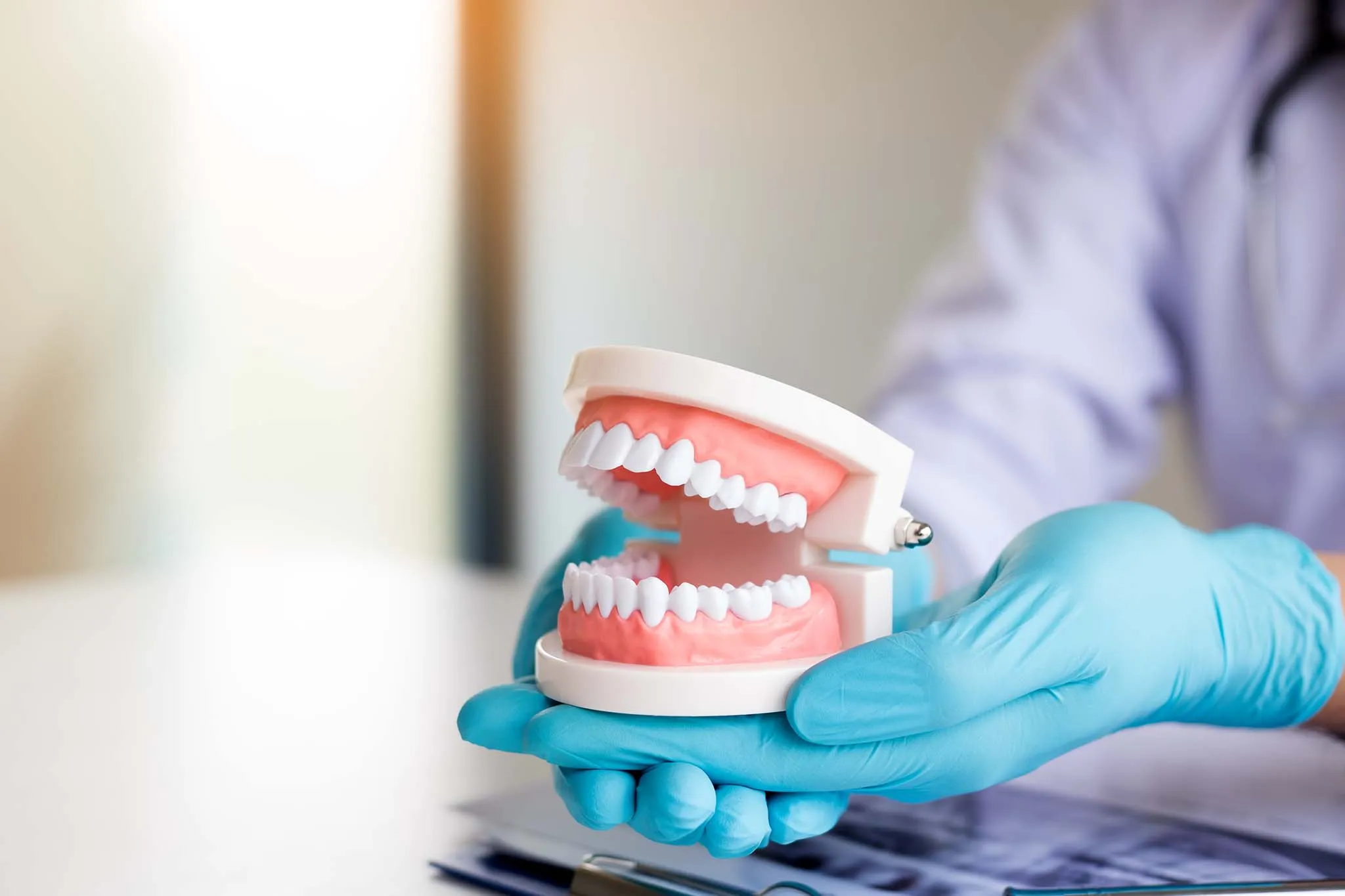
Free Nitrous
Stress-Free Care
If fear is keeping you or your little one from scheduling an appointment, we’re delighted to offer FREE nitrous oxide with your child’s treatment! Laughing gas can help them relax during their visit and then resume daily activities with a smile.
The Special Needs Dentistry Process
Initial Health Discussion
Dr. Parks will begin with a comprehensive consultation to understand your child's complete health picture. Our team will carefully review their medical history, current medications, therapy routines, and specific needs. We'll also discuss any previous dental experiences, sensory sensitivities, and communication preferences to ensure we create the most supportive environment possible. This thorough understanding helps us develop an approach that works best for your child.
Oral Exam & Teeth Cleaning
During your child's first visit, we'll conduct a thorough oral examination and gentle cleaning at a pace that feels comfortable for them. This allows us to assess their dental development, identify any immediate concerns, and understand their unique oral health patterns. We use this time to also observe how your child responds to different aspects of dental care, which helps us refine our approach for future visits.
Personalized Treatment Plan
After gathering all necessary information, Dr. Parks will sit down with you to discuss our findings and recommendations in detail. Together, we'll develop a customized treatment plan that addresses your child's immediate dental needs while considering their overall health requirements. This plan includes specific in-office treatment recommendations, preventive care strategies, and practical home care techniques tailored to your child's abilities and routine.
What makes us different
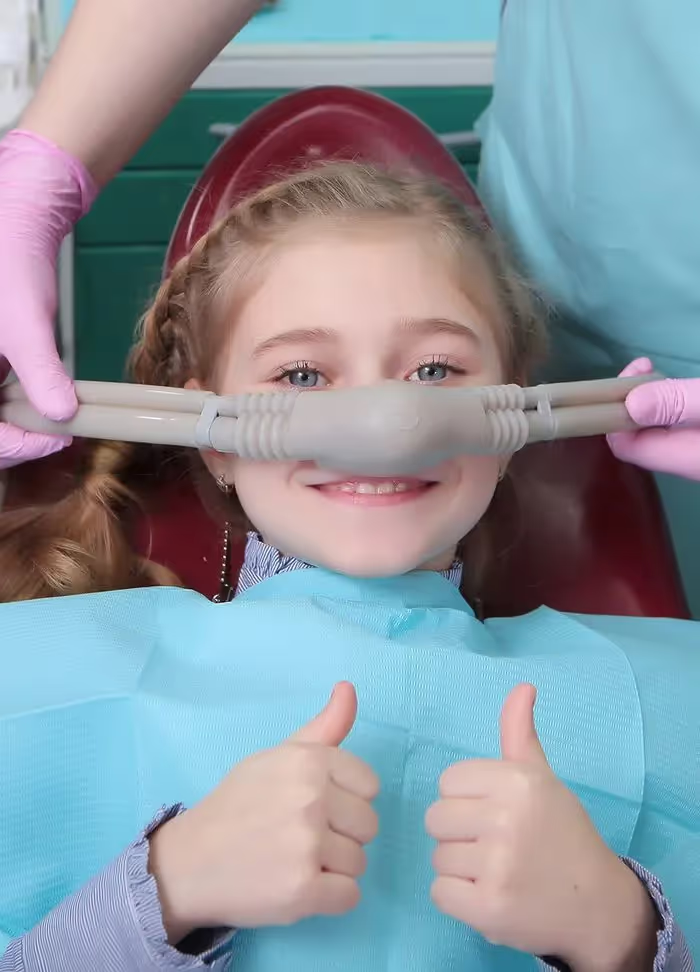
No Drill, No Shot Options
Numbing shots and noisy drills can cause unnecessary anxiety and fear for kiddos. We’re proud to offer drill-free and shot-free treatment options that not only protect your child’s smile but keep them calm and reassured, too.
FAQs
Frequently Asked Questions
Check out these frequently asked questions, or call us to speak with our team.
Many conditions can impact your child's dental care experience, including ADHD, anxiety, asthma, autism, cerebral palsy, cleft lip & palate, depression, diabetes, Down syndrome, epilepsy, hearing impairment, and traumatic brain injury. When scheduling an appointment, please let us know about your child's specific condition so we can ensure our practice meets your family's needs.
Medical conditions can affect oral health in several ways. Treatment medications, the condition itself, or both may influence tooth and oral structure development, calcium levels (which affect tooth enamel), saliva production, and dietary choices. Good nutrition is essential for both overall health and dental wellness. Even the simple act of chewing plays a vital role – it stimulates jaw bone development and naturally helps remove tartar and plaque through friction.
Keep an eye out for these indicators that might suggest a special health care need:
Teeth grinding or bruxism: While common in children and often temporary, persistent grinding may signal stress or anxiety. Addressing the underlying cause helps protect your child's teeth.
Food pouching: Some children, particularly those with food or sensory sensitivities, may hold food in their mouths longer than usual. This habit creates an environment where cavity-causing bacteria can flourish.
Bad breath:This could indicate various conditions, from digestive issues to diabetes or chronic sinusitis.
Many children's liquid medicines contain sweeteners to make them more palatable. While this helps ensure children take their medication, these sugars can lead to cavities without proper oral care afterward. Some medications may also reduce saliva production, creating dry mouth conditions that increase the risk of tooth decay, gum disease, and infections. Please share your child's medication list with us so we can develop appropriate oral care recommendations.
For children with physical, emotional, behavioral, intellectual, or communication disabilities, daily oral care might present unique challenges. Here's how you can help:
- Select a child-sized, soft-bristled toothbrush. Consider choosing one featuring their favorite character or color to make brushing more appealing.
- Try adaptive tools like large-handled brushes. If grip is challenging, you can secure the brush with a strap or guide it with your hand.
- Let your child choose from different fluoride toothpaste flavors and colors – finding one they enjoy can make a big difference.
- Take charge of toothpaste portions by applying it yourself, and supervise brushing to prevent swallowing.
- Transform brushing into a fun activity by incorporating songs, counting games, or the alphabet. This not only entertains but also helps ensure they brush for the right amount of time.


